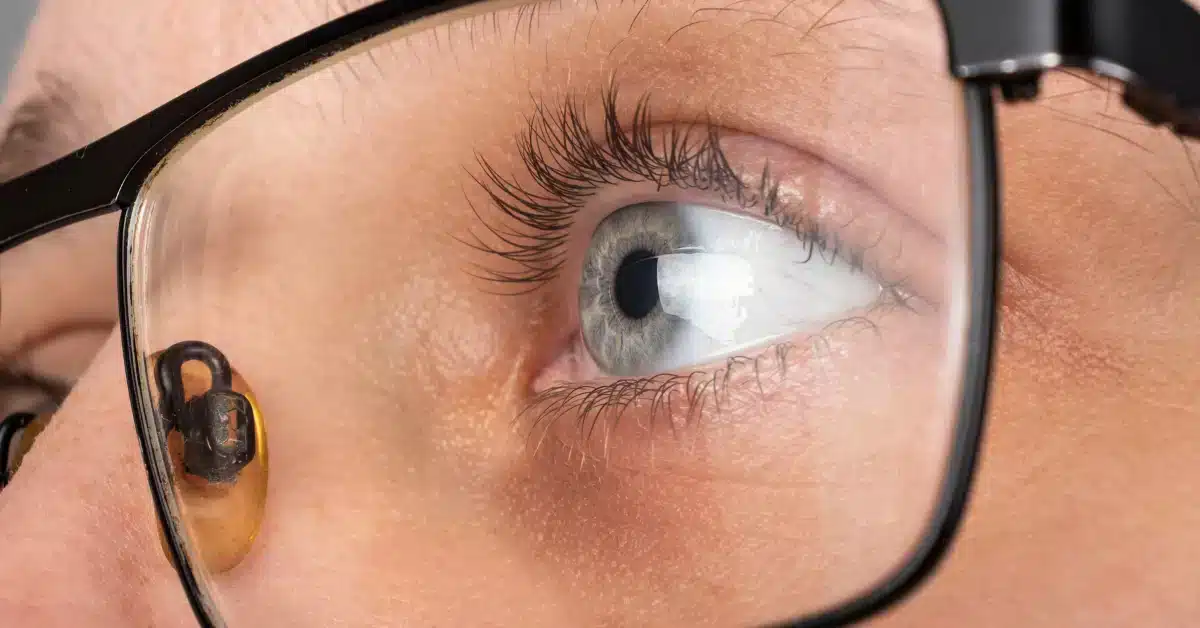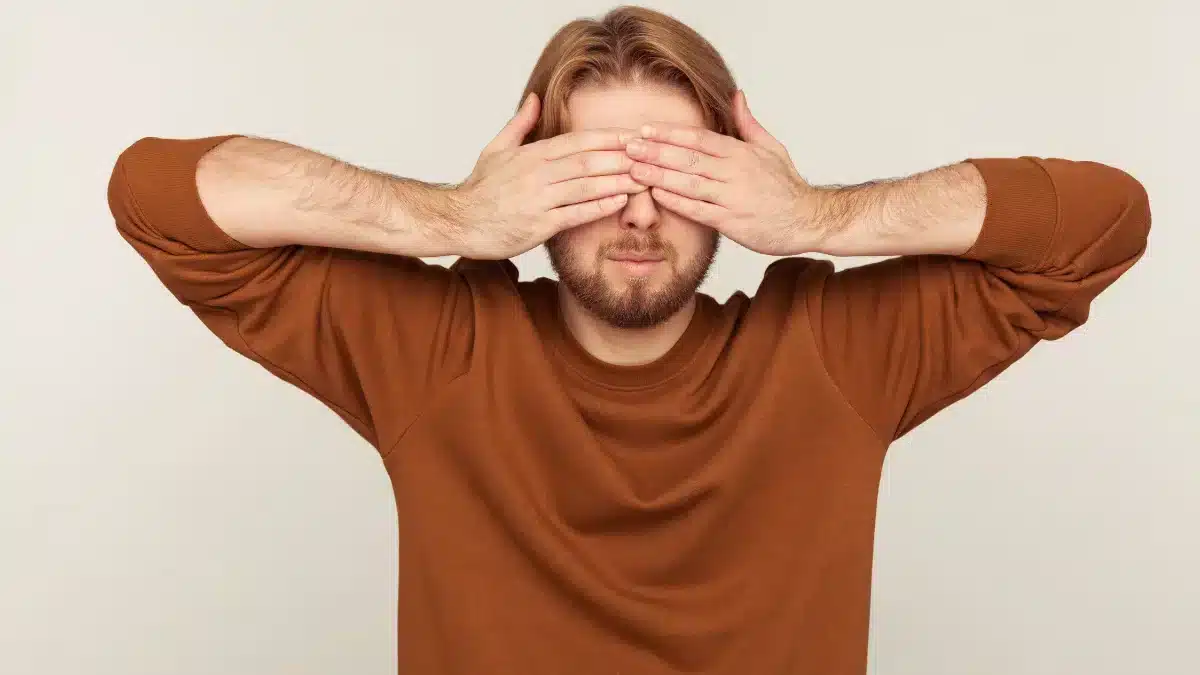A Complete Guide to Corneal Abrasion
Corneal abrasion is also known as the scratched cornea or scratched eye.
It refers to a superficial scrape on the cornea.
An abrasion only hurts the upper layer of the cornea, known as the epithelium and involves no harm to the layers underneath.
About 3% of all visits to the emergency room are due to eye injuries, of which about 80% are for corneal abrasions and foreign bodies.
But most of them are superficial injuries and can be treated easily.
This article will preview the symptoms of corneal abrasions, their probable causes, and available treatment options.
Symptoms of a scratched cornea
Most people know it instantly when they have scraped their eyes.
You might give yourself an abrasion without even realizing it.
Corneal abrasion might cause

- Blurry or hazy vision
- Eye pain
- Poor visual acuity
- Excessive tearing
- A sensation of a foreign body
- Red eye
- Photophobia
- Headache
Causes of Corneal Abrasion
Corneal abrasions are often caused by minor or direct injuries, which account for about 64% of cases of eye trauma.
There could be multiple ways for an eye injury to happen.
You might cause a direct injury to your eye if you:
- Poke your eye with your fingernail or a pen, etc.
- Rub it very hard
- Get chemicals into them
- Have surgery without proper protection of the eye
- Get an eye infection
- Get dirt, sawdust, sand, or some other foreign matter into the eye
Contact lenses
Your contact lenses could be another reason for corneal scratches.
Contact lenses may impair the corneal epithelium, which covers the front of the cornea.
Corneal abrasions involve just the epithelium of the cornea. Anything beyond that could be a corneal ulcer.
Wearing ill-fitting or dirty contact lenses might cause abrasion.
Also, wearing your lenses for more than their prescribed time might damage your contact lenses, leading to scratches.
Besides, putting in or taking out lenses might also scratch your eyes.
Dry eyes
You are more likely to suffer from corneal scratches with dry eyes.
Dry eyes are a condition in which the eyes produce insufficient tears to lubricate eyes.
People with dry eyes often complain of their eyelids sticking to the cornea.
For such people, something as simple as opening their eyes might lead to corneal abrasion.
First Aid
If you feel like you have something in your eyes, you might instinctively want to rub it.
Do not do that. This is likely to cause that abrasion.
Relying only on first aid might lead to developing an infection.
Instead, try the following:
- Blink your eyes multiple times.
- Rinse your eyes thoroughly with saline solution or clean water.
- Pull the upper eyelid over the lower one.
Do not try to dislodge if there is anything stuck in your eye
Treatments

Minor abrasions usually heal by themselves in a few days. But in case they cause discomfort, consulting a doctor is advised.
Upon being diagnosed with corneal abrasion, your doctor might prescribe you antibiotic ointment or eye drops, such as Ns Aid eye drops containing Diclofenac.
This keeps your eyes from getting infected.
In addition to it, they might also prescribe pain relief medication in the form of eye drops or pills to relieve eye pain and redness.
If you are experiencing significant sensitivity to light, your doctor might even suggest wearing an eye patch.
Make sure you do the following to avoid making your injury worse
- Do not rub or touch your eyes
- Avoid wearing contact lenses
Prevention
Eye abrasions and injuries can be prevented.
Following are some ways to try and minimize your risk of scratching that cornea.
- Wear protective eye gear while performing activities that might injure your eyes.
- Make sure you do not overwear your contact lenses.
- Do not rub your eyes vigorously.
- Never sleep without removing your contact lenses.
Scratched cornea vs pink eye
Sometimes, especially in the case of a child, it becomes difficult to tell if the signs are of pink eye or an abrasion.
Both conditions cause pain and discomfort, redness, runny nose, and sensitivity to light.
But certain differences can be between the two:
- Corneal abrasion usually affects one eye only, unlike the pink eye, which typically starts with one eye and spreads to both eyes.
- Abrasions and pink eye can both cause sensitivity to light. But the severity of sensitivity is much higher in the case of a scratched cornea.
- Pink eye is contagious, but abrasion is not.
Corneal ulcer vs Abrasion
Both corneal ulcers and abrasions cause injury to the eye, but they are different.
If not taken care of, corneal abrasions can turn into corneal ulcers.
Following is a brief discussion of these differences.
- An abrasion is a scrape of the top layer of the eye, while an ulcer is an open sore that goes through deeper layers of the cornea.
- Corneal ulcers may lead to pus formation and discharge, which is uncommon to see in an abrasion.
Takeaway
Corneal abrasion is a scratch to the upper layer of the cornea that could be caused due to multiple reasons.
This might cause a lot of pain and discomfort.
In such a case, wash your eyes thoroughly with clean water, and avoid rubbing them.
Minor abrasions usually heal by themselves in a few days.
But consult a doctor to ensure it is a minor abrasion, not an ulcer or some other infection.
The doctor might also recommend medications and an eye patch to relieve the pain.
Frequently Asked Questions
What to do for scratched cornea?
If you feel that you have scratched your cornea, do not rub the eye. Wash thoroughly with clean water or saline solution. Pulling the upper eyelid over the lower one might also provide some relief. Make sure to visit a doctor for the best diagnosis.
What does scratch cornea feel like?
A scratched cornea or corneal abrasion feels painful and might cause blurry vision. It might also give a sensation of having something in your eye, redness, and tearing. It might also make your eyes sensitive to light.
Do corneal scratches heal on their own?
Yes, corneal abrasions typically heal by themselves in one or two days. Your doctor might prescribe you antibiotics and other medications to help relieve pain and redness and ensure your eye doesn’t get infected.
WowRx uses only high-quality sources while writing our articles. Please read our content information policy to know more about how we keep our content reliable and trustworthy.






